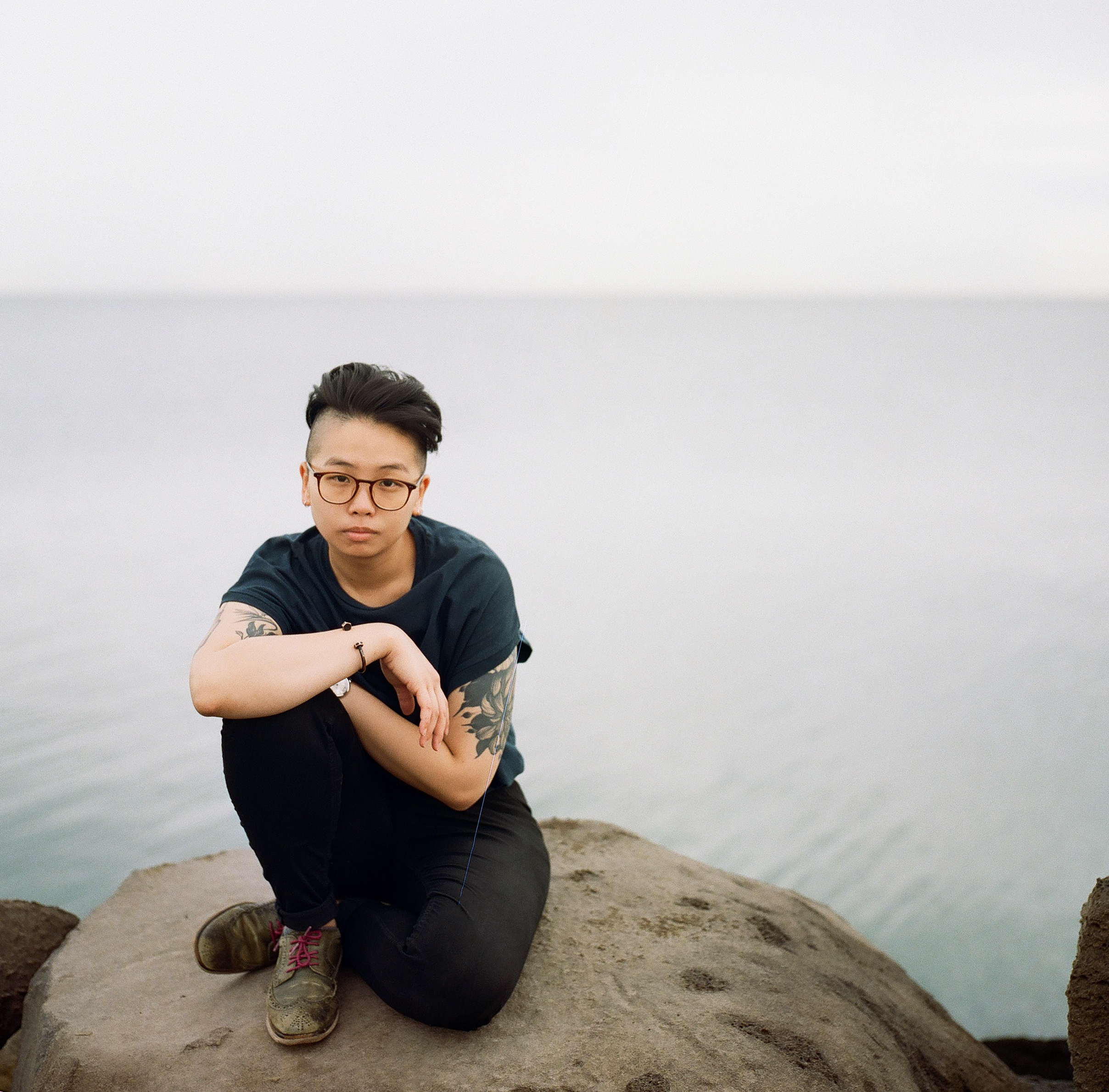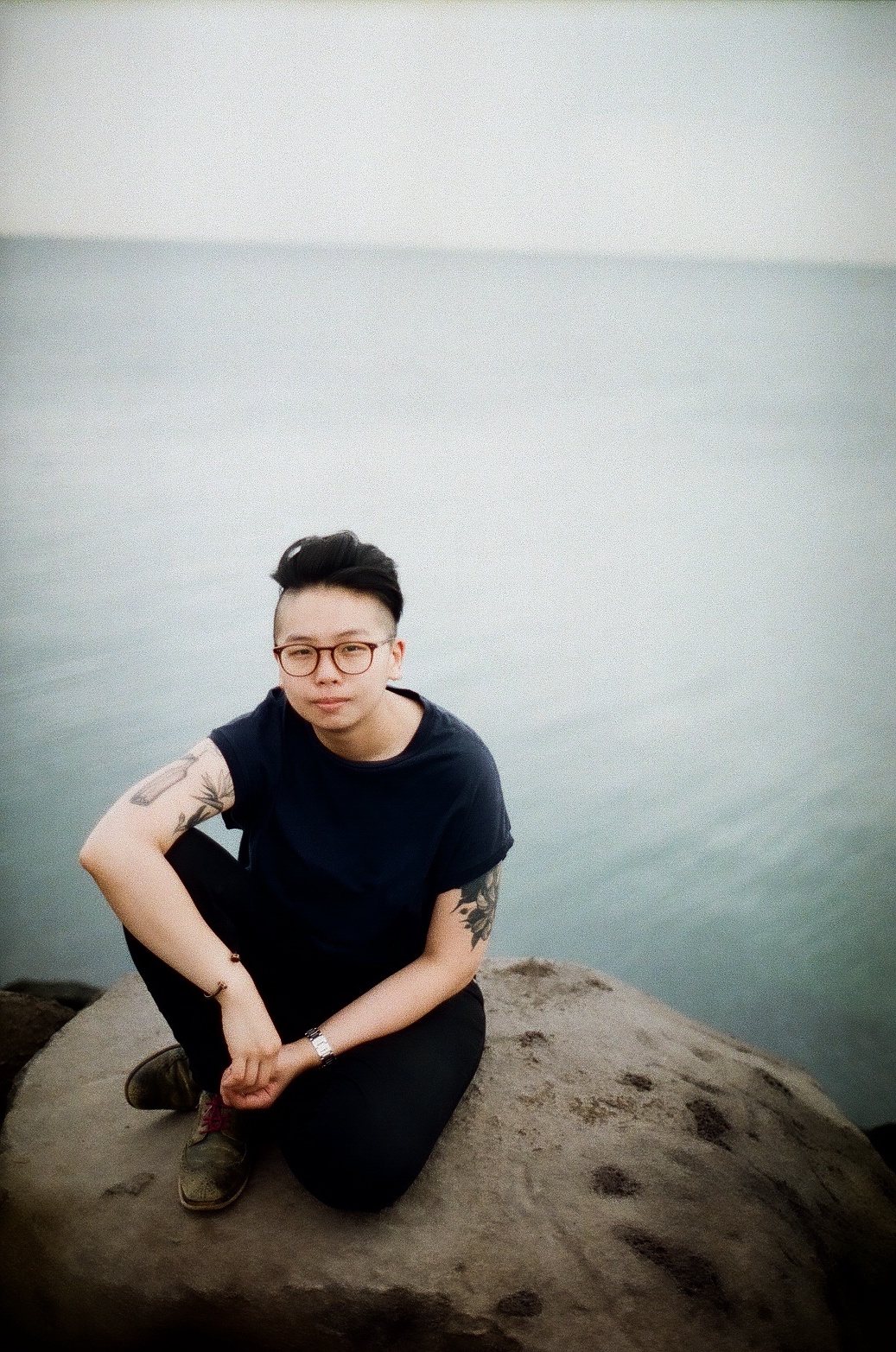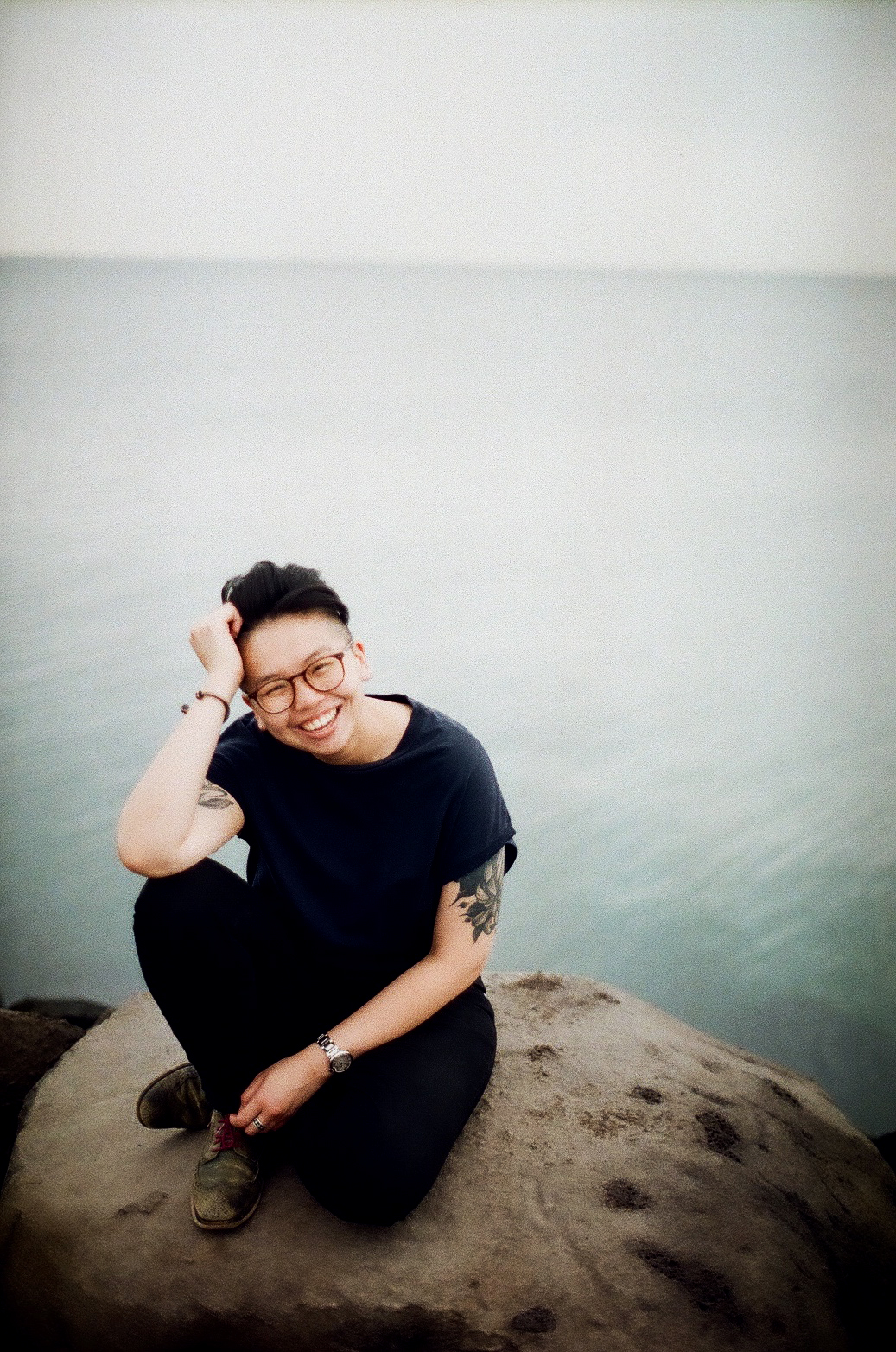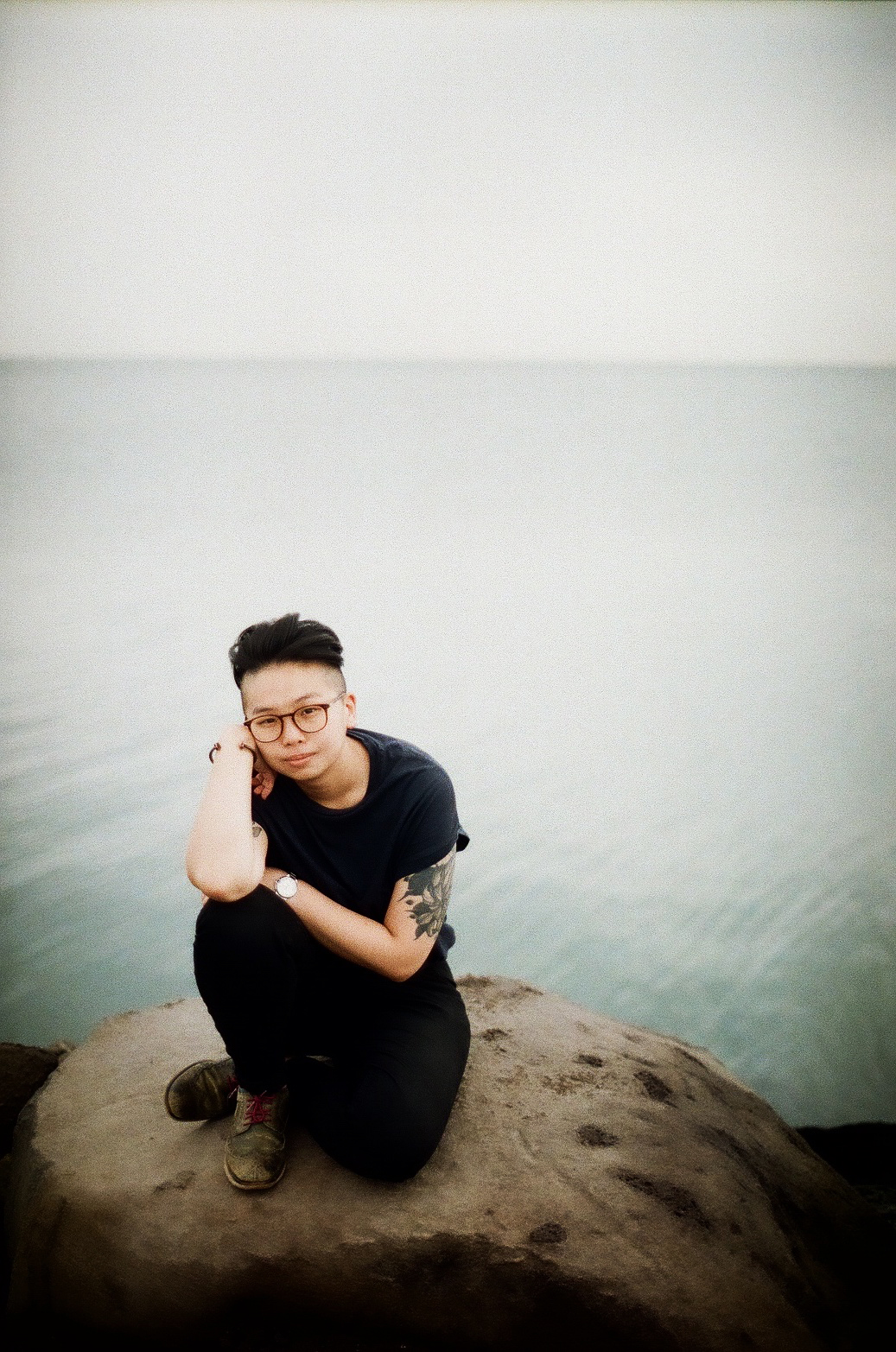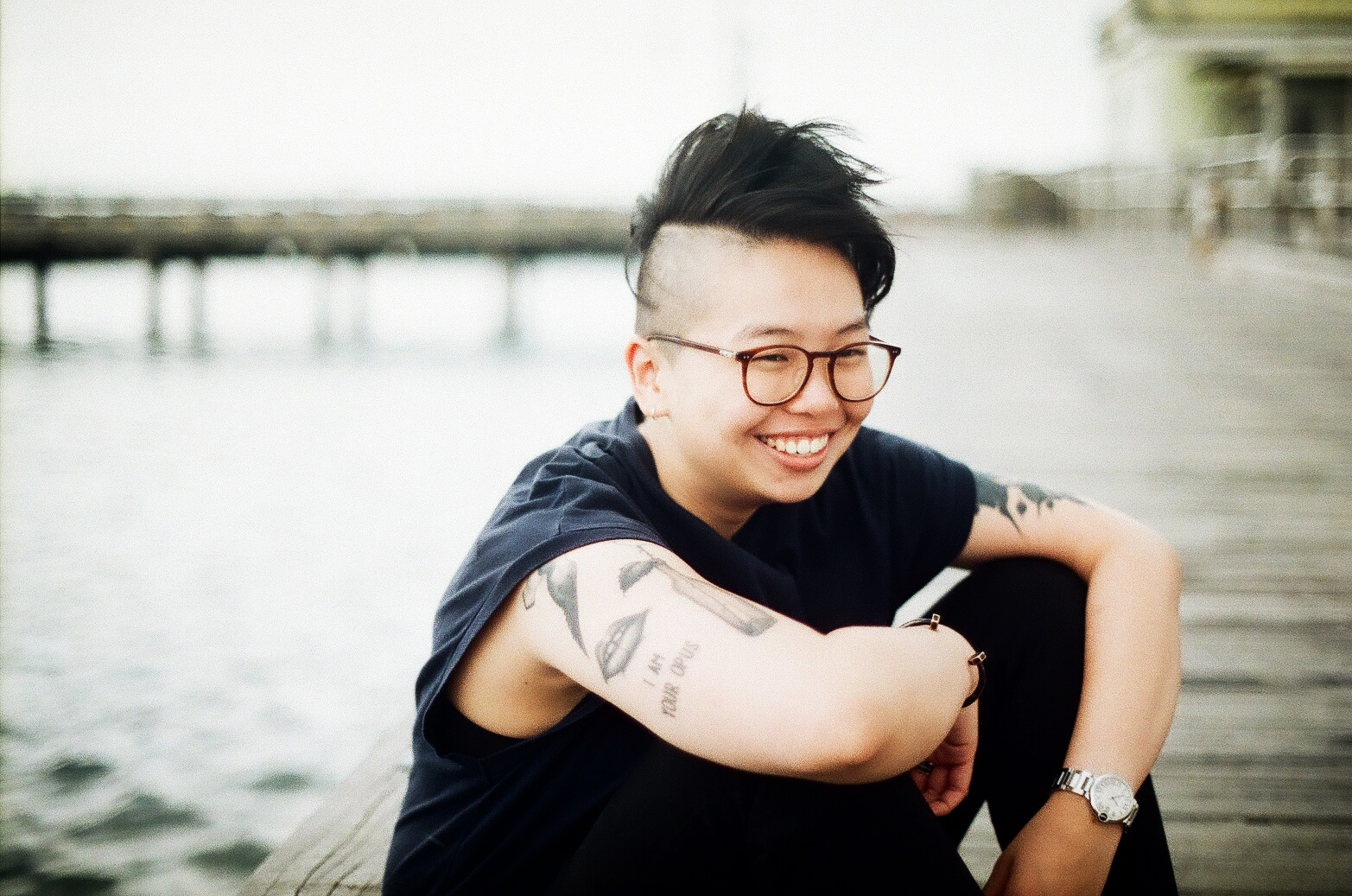Interview #49 — Jean Tong
Jean Tong is a Melbourne-based writer and director creating politically irreverent works about the untidiness of cultural identification, structural inequality, and Otherness. Her work makes explosive statements using dark humour and vivid imagery. In 2018, Jean presents Hungry Ghosts (Melbourne Theatre Company) and Romeo Is Not The Only Fruit (The Coopers Malthouse).
Jean has previously spoken to Liminal about creating her musical, Romeo Is Not the Only Fruit, which is in its second run at the Malthouse, from March 28-April 8, 2018. Read our 5 Questions about Romeo here.
To celebrate our interview with Jean, Liminal has partnered with Romeo Is Not the Only Fruit to create a limited number of totes. Find a tote here.
At twenty-two years old, you have received four stars from The Age for a musical that’s just about to open at The Malthouse. Can you tell us a little bit about how you fell into writing and how you’ve come to this point?
It’s all been a bit of a happy whirlwind—I’ve always enjoyed writing but I started uni thinking I’d do something 'practical' like media and communications. Three years of non-stop student theatre and a change in my major later, I’ve landed pretty happily in writing. I love playing with words and the immense amounts of support I received through the mentorship programs at Union House Theatre helped nurture that love of writing into actual content.
I was lucky enough to connect with really smart, encouraging people who have worked in the theatre industry for decades, and their advice and guidance is what’s shaped my career to date. They’ve nudged me into being bolder about the choices I make in my work, to be more ambitious and to be open to the work potentially failing to meeting the vision.
You describe yourself as creating ‘politically irreverent works about the untidiness of cultural identification, structural inequality, and Otherness’. I’m so interested in this concept of untidiness, in a world which tries to box in, flatten or stereotype people of colour.
I think labels have become strategically useful for a lot of major cultural institutions as they navigate government funding, criticism about the lack of diversity, and programming. Funding initiatives to bring up communities that have historically not been offered space is necessary and can be incredibly useful. However, the labels you need to be able to tick of yourself in order to be a recipient of those initiatives can also be an uncomfortable reminder that you’re viewed as that tick box first, that you’re your label before you’re your work. In the long term, I’m resistant to only being known by the labels I’m being associated with; in the short term, the lack of representation that we’ve had necessitates the use of what can become reductive and irrelevant categorisation.
Romeo tackles a beautiful intersection of queerness and race, reading as such a reaction to Australia in 2017! How do you find existing and working as a QPOC within the Melbourne Arts scene?
Romeo is one of those rare shows where I found that the identity I wore was explicitly relevant in the creation of the show. As a queer consumer of media desperate for shows where the endings weren’t tragic, I recognised the ‘Bury Your Gays’ trope implicitly, and have a very personal relationship to it.
I think if you keep getting accolades for just your labels, you can begin to lose sight of what your work actually is, and you can get really boxed in. It was therefore liberating to be able to tackle that material through a QPOC lens with a group of extraordinary collaborators. We understood the labels people would associate with the show, and the assumptions they would have about quality or personal desires about what that kind of show it ‘should’ be. And then we threw all of that out the door and just made the show we wanted to make, and we could feel secure about the material and excitement about our own approach.
Romeo is Not the Only Fruit bills itself as a lesbian satirical pop musical. What made you decide to pursue a musical form?
The idea for Romeo Is Not The Only Fruit initiated through student theatre collective DisColourNation, which included current cast members Sasha Chong, Margot Tanjutco, and Pallavi Waghmode, all of whom came from a strong musical theatre background.
But musical theatre is shockingly white, and a lot of ‘classic’ favourites are decades old and racist in content and casting. However, the way those stories are told is deeply familiar. (Who hasn’t seen any Disney?) It’s populist and entertaining and big—which seemed like the perfect way to approach a subject as potentially dire as a very long history of queer tragedy. The musical form allowed us to tell a story about the ‘Bury Your Gays’ trope and respond to it in the heightened way we needed to, but it also allowed us to simultaneously comment on and invert musical theatre tropes. Whether you love it or hate musical theatre, we’ve got your back.
Personally, I can’t sing or dance, and the only instrument I’ve ever played semi-competently was the euphonium, but… carry yourself with the confidence of a mediocre white man, right? By which I mean I found myself an incredibly talented composer (James Gales) and long-time musical theatre aficionado (Will Hannagan), and we smashed out eight original songs in eight weeks through a rigorous collaboration that turned out better results than I think any of us had dreamed for.
I watched Romeo is Not the Only Fruit just after the marriage equality vote had been counted! It felt very fitting at the time. What did you make of the campaign, how has this affected you and your work, if at all?
Our season opened on the night the results were announced, which was a nerve-wracking accident. We knew it was coming and it was a privilege to be able to make a show that could respond to that moment directly, and offer it to a community that was hankering for some space to relax in and feel safe in. I also focused a lot of my energies into the show, and this environment full of queer people became a bit of a haven. The space away from the campaign, media madness, and deeply hurtful claims allowed the show the space to retain enough naive innocence that it could be a more lighthearted balm despite its material.
This whole process has also opened my eyes to using comedy in my work (which is usually much more serious), and the accessibility of using a form like the musical to talk about things we would otherwise find hard to broach. I’m excited to keep building on the skills I’ve learnt from throwing myself headfirst into a form I’d never worked in, and feel more relaxed about how audiences engage with a work (i.e., just because they’re laughing doesn’t mean they’re taking it lightly.
Romeo is in its third run; what has changed since its first run? Is this the first time you’ve seen something in its second/third iteration; how does it feel to watch it grow?
It’s the first time I’ve worked on the third iteration of any show I’ve written, and it’s been a real pleasure to find new meanings and ways of dealing with the content. We’ve been able to bring in a choreographer and up the production values of all the technical elements so everything’s slicker and funnier, and the cast have met this at every level by bringing more and more to every rehearsal. Their confidence in the material and the pleasure of taking the audience on that journey with them has definitely grown, so the heart of the show has stayed steady. Doing a show at The Coopers Malthouse is a big step for all of us, but we’ve done the development, we’ve put in the time, and I’m incredibly proud of how far everyone on the team has come.
You also have a play, Hungry Ghosts, running at MTC this year. It seems quite different in tone to Romeo! When did you write it and what was the impetus behind it?
I started thinking about the play in 2016 when I’d just turned twenty-one and was thinking very moodily about adulthood and feeling a bit homesick about Malaysia. I was reading some wild conspiracy theories that linked the 1MDB financial scandal with the disappearance of Malaysia Airlines flight MH370, and the online fervour around both made me feel really detached from the politics of it all while living so far from home.
I felt absent from the country and its politics, which itself was still concerned the absence of the plane, and furious about the absence of the money. The three moments coalesced and that’s been the anchor for Hungry Ghosts—what does disappearing look like at such vastly different levels, and how do you talk about something that’s so ethereal and unknowable?
Hungry Ghosts is vastly different in style from Romeo. There aren’t characters or narrative in the traditional sense: it’s much more about the juxtaposition of images and events, and their affect on the three figures wandering through the debris of this absence.
You’ve achieved so much in such a short amount of time. How do you do it?
Lots and lots and lots of support from my friends and family, and lots and lots of leaning on people who have been around much longer than myself. We love a good prodigy tale, but I love a good debunking. My family’s been financially supportive of my wild art dreams, and it’s an absolutely privilege to be able to do this pretty much full-time so early in my career. I’m keenly aware that I being generously given the resources to be able to have anything at all, and that’s something that keeps me asking why I make the work I make. It’s not an entitlement to be able to make and share work, and so I’m always questioning who I want to try to elevate with the work I do make, because I have been given that chance and I don’t want to fumble it.
What is next from Jean Tong?
I want to go back to actively learning how to do things, so I’m trying to get into screenwriting, which I don’t know much about. Getting such a positive reception in theatre is starting to go to my head, so it’s been nice to get into some rooms where I feel like the most ignorant fuck in all the land. So maybe some quiet for a while after Hungry Ghosts finishes in May? It’s been a hectic 2017-2018.
Do you have any advice for emerging playwrights?
Go do lots of things in theatre that isn’t writing. There’s nothing quite like looking at the pure mechanics of theatre that challenges you about why you personally want to make your show in the way that you do. See as much variety of work in as many mediums as you can afford to, and figure out what gets you fired up. The beauty of how one particular novel has been constructed can be as much of a map for your play as an existing play.
Who inspires you?
Bakers. They work ridiculous hours, pay so much attention to detail, and respect that the time and effort they put in has tangible effects on quality. Also they make delicious things that people actually want to pay money for. #Goals.
What are you currently listening to?
Hayley Kiyoko, Brandon Thomas, and Spotify’s ‘This Is: Britney Spears’ playlist.
What are you currently reading?
I recently finished Elizabeth Tan’s Rubik, which I loved for its tone, humour and adeptness. Other than that I’m making my way through a stack of back issues of The Lifted Brow.
How do you practice self-care?
Scheduling time in with my friends and not talking about theatre even though that’s what many of our lives revolve around. Good food. Excessively energetic, usually solo dance parties in my living room.
What does being Asian-Australian mean to you?
It’s a reminder about the constructions of nationhood (violent), assumptions about racial identity (shaky), and presumed legitimacy to culture (dubious). I grew up in South East Asia, but spent my late adolescence in Australia, so I feel equally connected and disconnected from both.
Interview and photographs by Leah Jing McIntosh
To celebrate our interview with Jean, Liminal has partnered with Romeo Is Not the Only Fruit to create a limited number of totes, featuring the original motifs from acclaimed satirical lesbian pop musical! Find a tote here.

